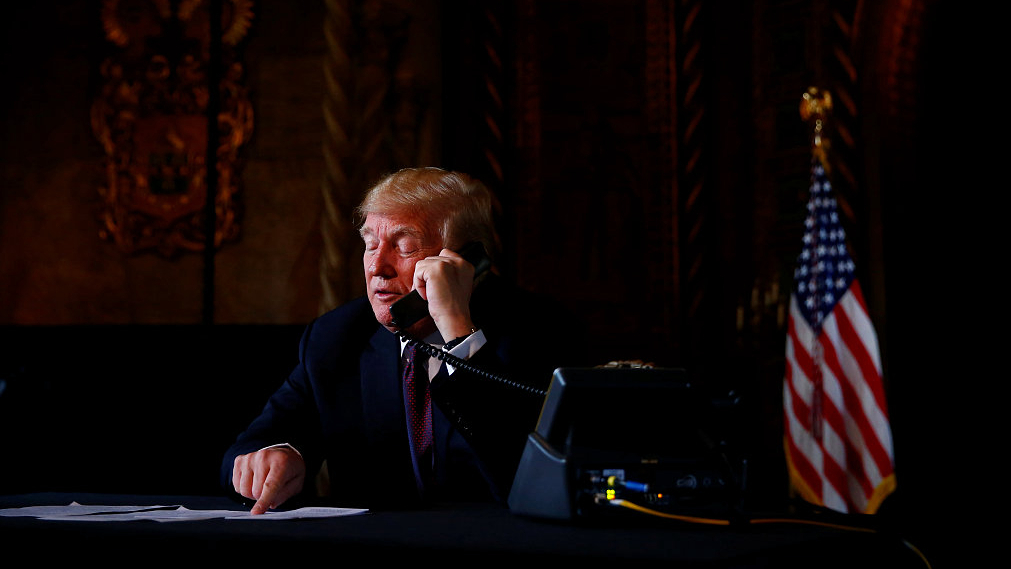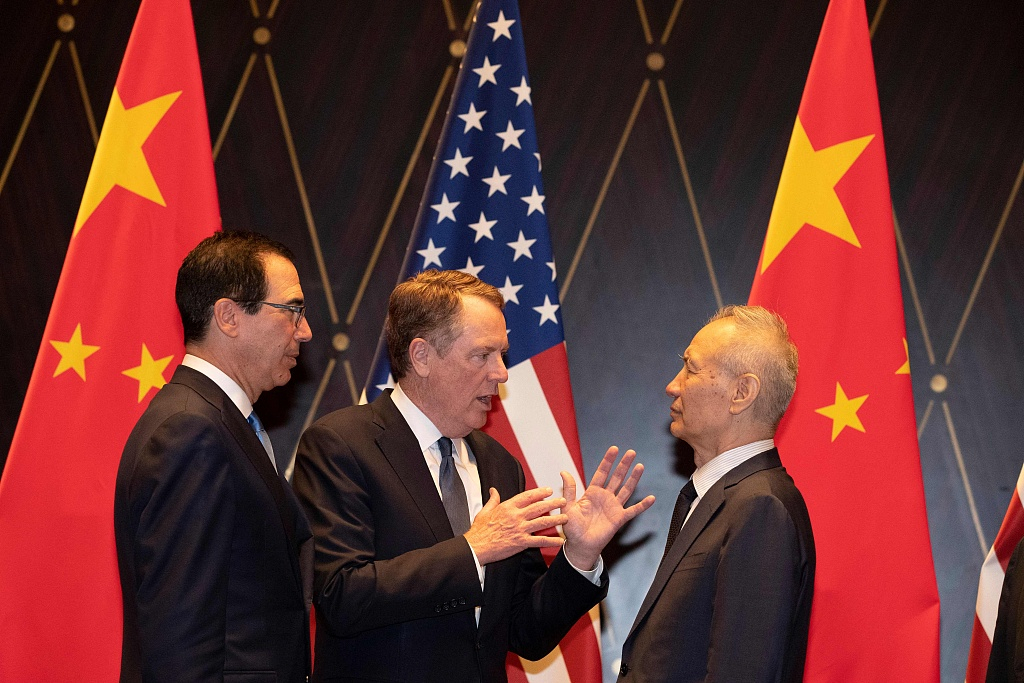

Editor's note: Tom Fowdy is a British political and international relations analyst and a graduate of Durham and Oxford universities. He writes on topics about China, the DPRK, Britain and the United States. The article reflects the author's opinions, and not necessarily the views of CGTN.
Just a day after President Donald Trump raised tariffs on China yet again, he took to Twitter and claimed that the White House had received a phone call from Chinese side, with the official apparently claiming Beijing wanted to "get back to the table" and "restart trade talks." The president insisted from this alleged dialogue that China "wanted to make a deal" and that "I'm not sure they have a choice."
There was one big problem with his remarks: China's Foreign Ministry stated that no telephone conversation had ever taken place. While it is true to note that China has not shut the door on dialogue in any way, with Vice Premier Liu He commenting "We are willing to resolve the issue through consultations and cooperation with a calm attitude," the claim of the Chinese official phoning the White House seemingly begging for dialogue is a false narrative created by Trump.

United States Trade Representative Robert Lighthizer (C) gestures as he chats with Chinese Vice Premier Liu He (R) as U.S. Treasury Secretary Steve Mnuchin (L) looks on, Shanghai, China, July 31, 2019. /VCG Photo
To decipher why Trump made up such a claim is quite obvious. The president has a tentative history of fabricating information in order to exaggerate his policy success in office. On the matter of the trade war with China, he has several incentives to do this. As with all foreign policy issues, the president wants to reap the flames of assertive nationalism and paint a misleading picture that he is bringing a country to its knees, desperate for mercy.
Given the trade war is now hurting the United States, the White House especially wants to show it is "winning" against China and thus forcing them to negotiate on American terms — but given Beijing has made it clear it will not capitulate, how long can he keep up this charade?
Trump can be accurately described as one of the most dishonest American presidents ever. Since assuming office, the president has made an overwhelming number of outright false and misleading statements with no basis in empirical reality. Disinformation has effectively become a core component of Trump's strategy in selling and vindicating his policies, spewing nonsense such as the American economy is "the biggest and best ever," that the United States is "making billions off tariffs from China" and so on. According to a Washington Post tally, the president had made over 10,000 false or misleading claims since coming to office.
This habit, of course, is a key component of his foreign policy too. In dealing with other countries, Trump utilizes disinformation and exaggeration alongside fiery nationalism to justify his aggressive treatment of others and show his unilateral "America First" take to be successful. In doing so, he enjoys setting out how his policies are causing desperation and an eagerness to submit to U.S. terms among other countries, thus aiming to shape the discourse that he is always "winning."
On the matter of China, these kinds of exaggerations have been a significant theme. Throughout the course of the trade war, the president has repeatedly claimed that "millions of jobs" are leaving China, that "U.S. companies are leaving China in droves" and he has repeatedly claimed that "China wants a deal" (as if to imply it is a one-sided notion).
Therefore, when the latest tariff increases were announced, the fabricated phone call from Liu He was a deliberate attempt to set a narrative that China was "desperate" and thus claim success for his own policy move, especially in the light of negative reactions from markets.
In doing this, the president has been eager to paint a picture to the public that the trade war is proving to be a strategic success and that by "getting tough" on China, pushing them into a corner whereby they have no choice but to submit to American terms, thus victory is in sight.
As the trade war is now hurting the United States and an economic slowdown is accumulating, the president is under additional pressure to prove that this has all been "worth the price" that is being paid.
However, one must question how long can the president keep up this deception? China has always made it clear that they will not be submitting to unilateral American preferences in the light of the newest escalation. While they have not shut out negotiations altogether, their line has been consistent that they will not accept a one-sided capitulation to the United States, but will resist such pressure.
Thus, while the president is attempting to trump up a saying about China's reactions to tariffs and negotiations, eventually this will all catch up with him. Trump's increasingly misleading, contradictory and confusing messages about the trade war do not illustrate a White House who has the upper hand, but depicts a president who is increasingly unsettled in his attempt to justify an increasingly costly policy which is backfiring and failing in achieving its intended goals.
(If you want to contribute and have specific expertise, please contact us at opinions@cgtn.com.)

Copyright © 2018 CGTN. Beijing ICP prepared NO.16065310-3
Copyright © 2018 CGTN. Beijing ICP prepared NO.16065310-3